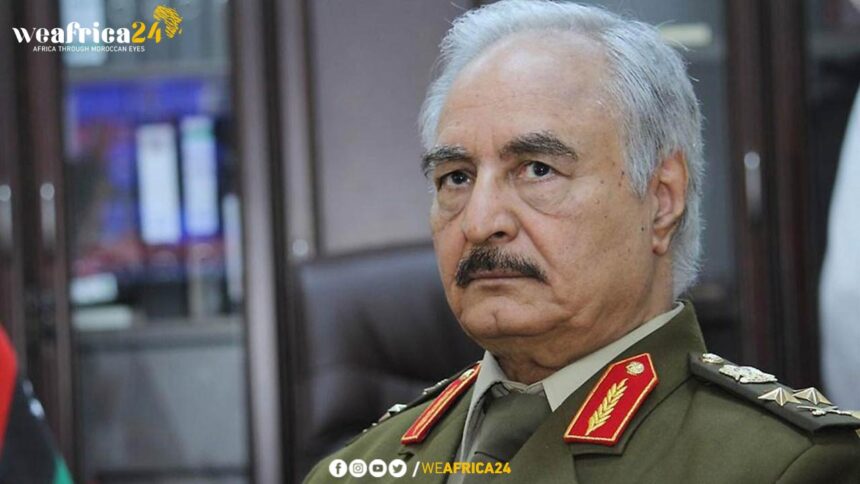Libya’s army mobilized towards the southwestern triangle of the country bordering Algeria, as per media reports. Images and videos on “X” showed conglomeration of military personnel claimed to be the Libyan forces, in readiness for the recapture of the highly strategic area “occupied” by Algeria.
Some signs are appearing of a recourse to an armed frontier conflict between Algeria and Libya, as Tripoli is pressing its claim to sovereignty over the Tncy sector near the Niger frontier. Stepped up tension saw Libya concentrating forces in the area described by some sources as a “final warning.” The two countries have remained officially tight-lipped, however.
Reports have indicated forces commanded by Libyan strongman Khalifa Haftar are trying, quite literally and figuratively, to retake a swath of land measuring 32,000 square kilometers—bigger than Belgium. Libya’s National Army contends that this is their land and has been illegally occupied by Algeria, after prior warnings for them to withdraw went unnoticed.
The Algerian authorities have insisted that respect toward recognized borders between the two countries is the way to avoid regional conflict, adding that there are no known Libyan claims over the disputed area and that Algeria’s national sovereignty is something non-negotiable.
This region also shares borders with Libya, Algeria, and Niger, so it becomes of huge strategic value, since it is side by side with the Fezzan, belonging to Haftar. The LNA claimed that it was “occupied territory by Algerians.”
The move comes against the backdrop of continuous fighting between Libyan and Algerian forces along the border terrain, a zone infested with extremist armed groups and gangs of drug traffickers. Of particular note, in the middle of May, three Libyan soldiers were reportedly killed in an attack near Algeria’s northeastern border.
As the situation unfolds, regions stand on edge, having far-reaching implications for wider regional stability and international diplomatic relations.







